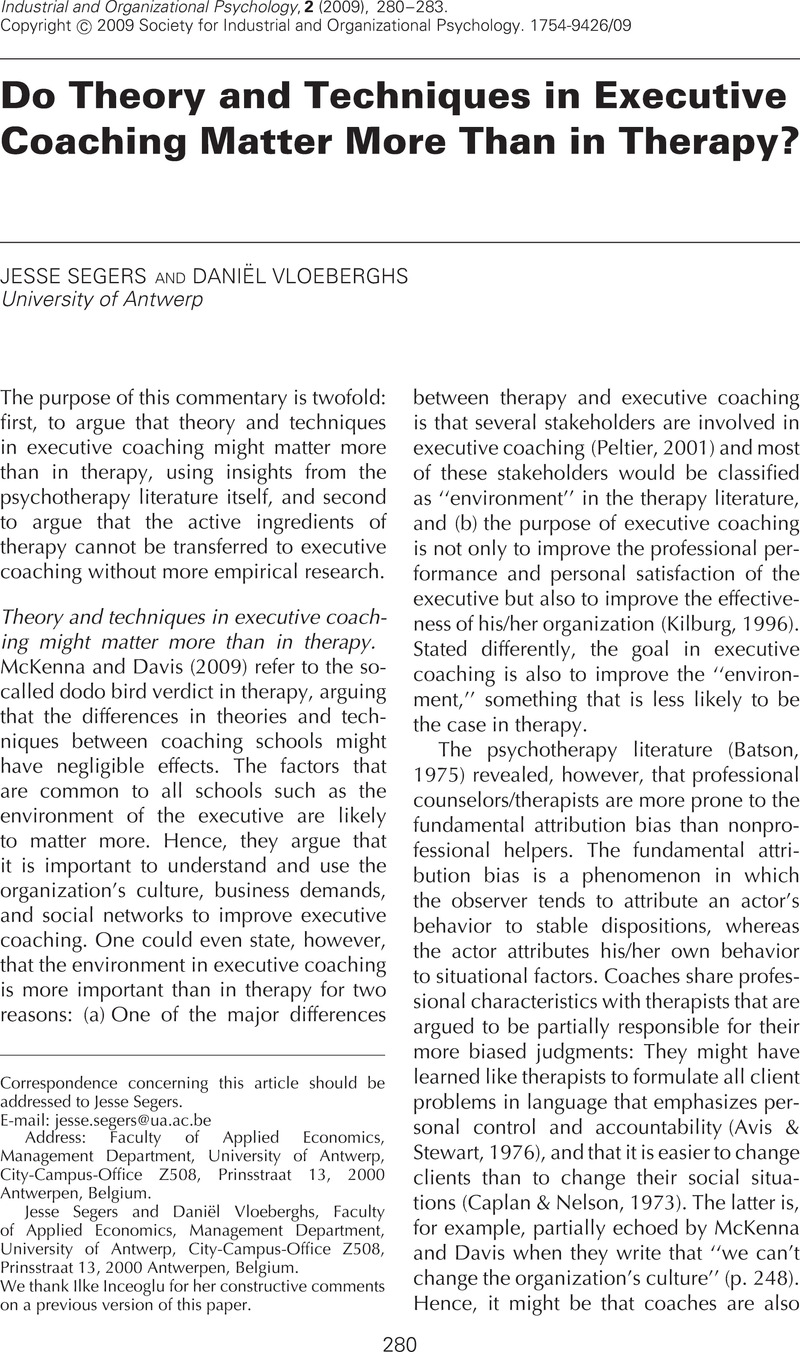Crossref Citations
This article has been cited by the following publications. This list is generated based on data provided by Crossref.
McKenna, D. Douglas
and
Davis, Sandra L.
2009.
What Is the Active Ingredients Equation for Success in Executive Coaching?.
Industrial and Organizational Psychology,
Vol. 2,
Issue. 3,
p.
297.
Smither, James W.
2011.
Can Psychotherapy Research Serve as a Guide for Research About Executive Coaching? An Agenda for the Next Decade.
Journal of Business and Psychology,
Vol. 26,
Issue. 2,
p.
135.
Grant, Anthony M.
2014.
Autonomy support, relationship satisfaction and goal focus in the coach–coachee relationship: which best predicts coaching success?.
Coaching: An International Journal of Theory, Research and Practice,
Vol. 7,
Issue. 1,
p.
18.
Lech, Agnieszka M.
van Nieuwerburgh, Christian
and
Jalloul, Sirine
2018.
Understanding the experience of PhD students who received coaching: an interpretative phenomenological analysis.
Coaching: An International Journal of Theory, Research and Practice,
Vol. 11,
Issue. 1,
p.
60.



